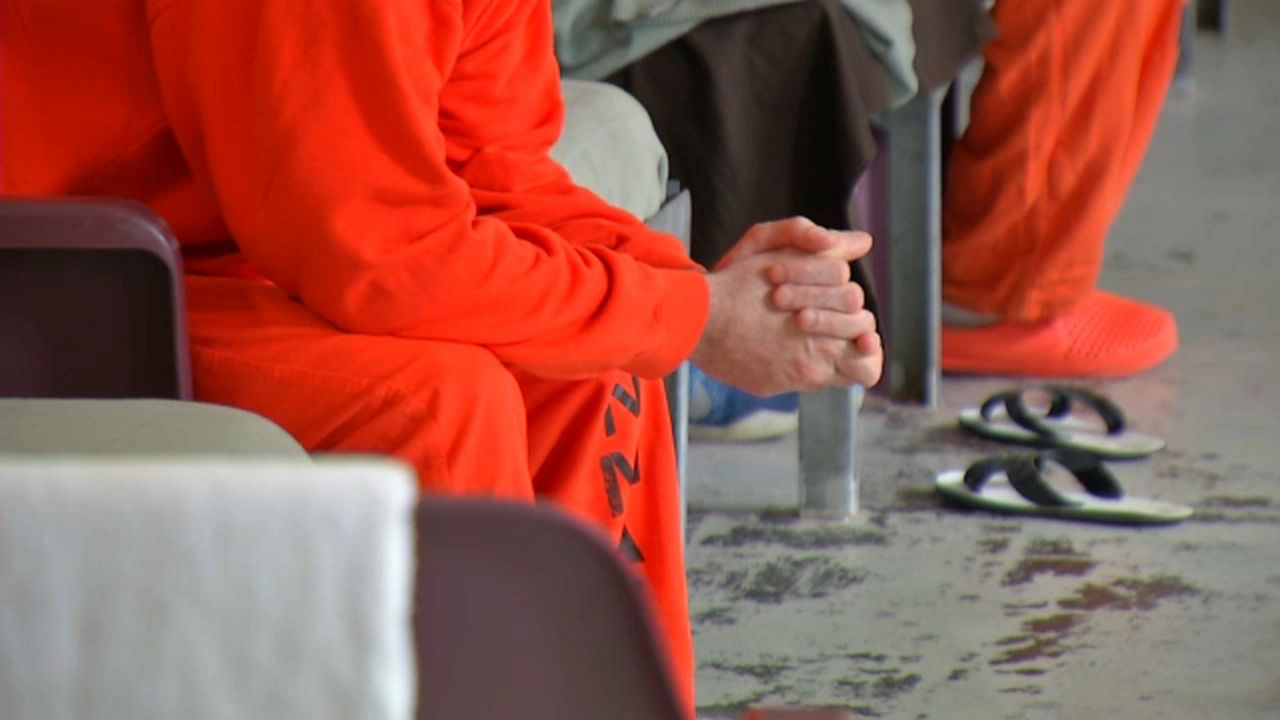This story is reported by Florida Today, a Spectrum News partner.
BREVARD COUNTY, Fla. — A second inmate at the Brevard County Jail has tested positive for the novel coronavirus, according to Public Defender Blaise Trettis.
The "inmate was described as a 61-year-old man who was taken to Rockledge Regional Medical Center because of a fall he took," Trettis wrote in an email Wednesday to FLORIDA TODAY.
The COVID-19 infection was confirmed because it is the hospital's protocol to do a rapid test of all new patients, regardless of the reason they are brought to the hospital.
Trettis said he was informed "that the man had not exhibited telltale signs of coronavirus — that he only had some congestion going on."
The man is the second inmate associated with the Brevard County Jail to test positive. The first, confirmed in a letter from Sheriff Wayne Ivey to judicial officials on Tuesday, was tested on July 18.
According to Trettis, the Brevard County Sheriff's Office informed him that "inmates must wear masks in the jail and that they are quarantined for 14 days upon their arrival at the jail, that the jail is cleaned a lot with disinfectant."
According to the health services provider for the jail, Corizon Health, just five inmates have been tested since the start of the pandemic. Since May, it has been just one.
Inquiries to the BCSO and Corizon about the small number of tests administered were not immediately replied to.
"It’s impossible for me to know what the situation is inside the jail population," Trettis said, adding that he wondered what criteria was used to determine when an inmate should be tested.
"If, in fact, every effort is made to wear a mask and they quarantine people for 14 days, then you can infer the jail has done a very good job," Trettis said. "But I don't know."
According to Trettis, the latest daily inmate population count was 1,474.
In previous correspondence, Corizon stated that it followed CDC guidance and criteria for correctional facilities.
Interim testing guidance from the CDC that was updated on July 7 states that a broad testing strategy should be considered when rigorous close contact tracing within the inmate population is not practicable.
Brevard County has had a total of 5,254 COVID-19 cases through Wednesday, including 95 death, according to Florida Department of Health data.
A court order issued on July 27 compels the sheriff to inform the clerk of courts, the state attorney and the inmate’s lawyer when an inmate is COVID-19 symptomatic.
Ivey said in his letter that there also have been two new positive COVID-19 test results for Brevard County Sheriff's Office employees at the jail complex since he issued his last update on July 6.
That brings to total number of positive tests obtained by BCSO employees assigned to the jail complex to eight — four corrections deputies, three civilian staff members and one court deputy.
Ivey said all but one corrections deputy and one civilian staff member have been cleared by their medical provider to return to work.
Ivey said the first jail inmate to have COVID-19 recently was incarcerated into the facility, and was "still in the reception quarantine status" when the positive case was confirmed on July 18.
In reacting to the news of a COVID-19 case within the inmate population, Trettis said: "With community spread of the virus as it is, I think that it was just a matter of time before the virus appeared in the jail inmate population.”
Ivey's Monday letter also detailed various measures the BCSO has implemented at the jail to guard against the spread of COVID-19, including:
- Quarantine periods for new inmates.
- Additional medical screening procedures "to quickly identify and respond to potential cases among either BCSO personnel or inmates."
- Having Centers for Disease Control and Prevention-recommended medical screening, including temperature evaluations and a questionnaire prior to staff entering the jail and other BCSO facilities.
- Limiting jail complex access to only essential personnel.
- Keeping jail staff in their designated work areas to limit unnecessary interactions throughout the jail complex.
- Providing face coverings to inmates to reduce the risk of infection.
- Increased "inmate education and awareness of proper and recommended hygiene techniques through postings and informational television broadcasts."
- Increased disinfection and cleaning throughout the jail complex.
- Increased hygiene supply issuance and laundry cleaning.
Alessandro Marazzi Sassoon is a Watchdog Reporter at FLORIDA TODAY.
Contact Sassoon at 321-355-8144, asassoon@floridatoday.com and Twitter: @alemzs
To sign up for this partner’s newsletter and have stories sent directly to your inbox, visit here.



